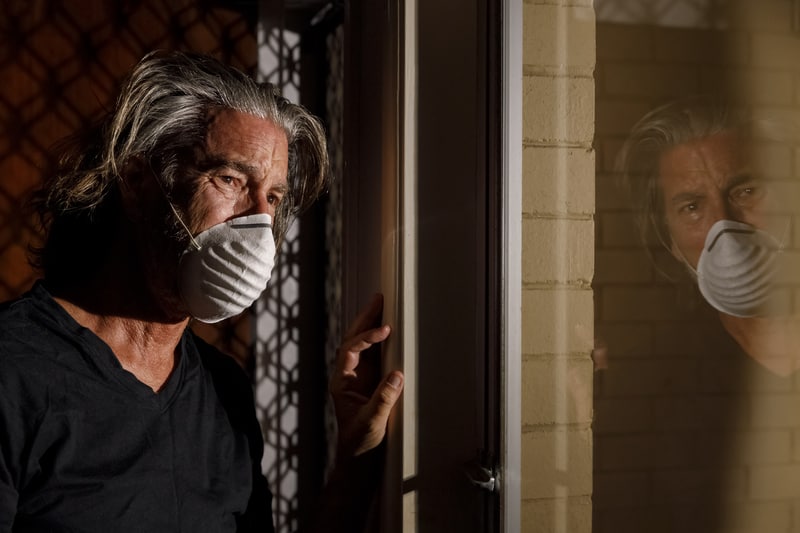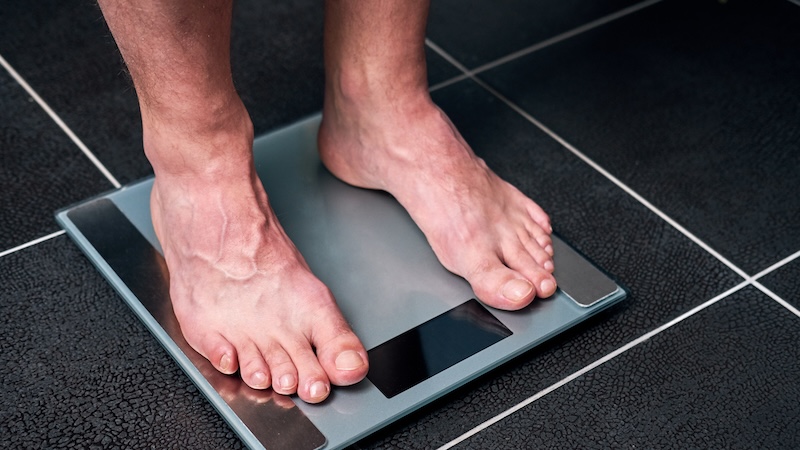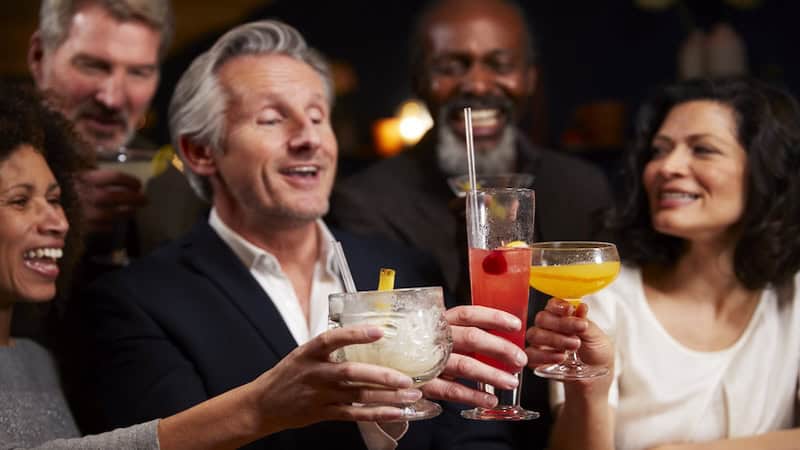Facing the emotional fallout of the pandemic
COVID and mental health repercussions

This May, Mental Health Awareness Month casts a wide net. The coronavirus pandemic significantly changed everyone’s world, making mental health an issue for more people than ever, including baby boomers. COVID’s mental health repercussions are real, but solutions are within our grasp.
A host of contributing factors
Here in the U.S., the problems began in earnest in March 2020, when the number of Americans contracting and dying from COVID-19 skyrocketed. Since older adults were identified as most at risk, we quickly became fearful – aware of mortality and anxious to avoid contracting the virus. We perhaps knew people who became severely ill or died – peers, friends, family members, neighbors. To avoid catching or spreading coronavirus, we began social distancing – which inevitably led to increased social isolation. Many who survived COVID suffered long-term health repercussions.
To many Americans of all ages, fallout reached beyond personal health concerns – grief, job changes and job loss, financial challenges, childcare and schooling issues, and more. These and other life changes – or simply uncertainty and fear of what might change – led to stress, anxiety, and depression.
In a report entitled, Stress in America 2020: A National Mental Health Crisis, the American Psychological Association broke down mental health problems by age. Baby boomers are not among the hardest hit – perhaps our experience has given us improved resiliency and long-term outlook.
According to the report, Gen Z adults (46%) were the most likely generation to say that their mental health has worsened during the pandemic, followed by Gen Xers (33%), Millennials (31%), boomers (28%) and older adults (9%). Around half of adults (47%) say they have felt very lonely during the pandemic, especially Gen Z and Millennials.
Now that more than 50% of U.S. adults are vaccinated and restrictions are loosening, we can feel hope for a post-pandemic return to normalcy. But returning to “normal” mental health” won’t happen overnight, with mixed emotions and continued anxiety lingering.
Managing COVID’s mental health repercussions
This transition can induce stress, but there are ways to cope with and prioritize one’s mental health through this new way of life. Boomer spoke with Dr. Ashvin Patel of Dominion Behavioral Healthcare (DBH), who is board certified in adult and geriatric psychiatry.
What mental health issues might baby boomers face as the pandemic eases?
Now that we are in a transition period back to “normal life,” new worries and stressors can be brought to light due to uncertainty, which is very normal. Stress and anxiety can be prolonged from common concerns like: What is it going to be like going back into the office? How will I react to traveling for the first time or being in large groups? Will there be other coronavirus strains in the future? Will I have to get an annual booster vaccine?
But it’s important to remember that stress is a normal reaction to whatever is going on in your life, good or bad. The body is reacting to a certain situation whether it’s physical, mental, or emotional. With uncertainty comes heightened stress, but sometimes stress can be positive to make one more proactive. We are transitioning back to being able to see loved ones and friends. We’re easing into increased socialization, which helps minimize depression symptoms. We’re beginning to shift back into organized activities and hobbies. Taking that uncertainty and instead focusing on what we DO know will happen after COVID is a helpful approach to coping with the transition back to “normal life.”
In a time when many people have experienced the worst of the pandemic, it can be challenging for others to feel that they even “deserve” to feel stressed.
Survivor guilt, when a person believes they have done something wrong by surviving a traumatic or tragic event when others did not, is a normal reaction. Oftentimes survivor guilt makes one feel self-guilt, where they blame themselves and begin to self-loathe. Long-term effects can lead to PTSD, severe depression, and heightened anxiety.
COVID ADVICE FROM ASK AMY:
It is important to understand that, while painful, survivor’s guilt is a common grief response to a tragic situation. Some people are better able to effectively manage this guilt while others have more difficulty. But the more you attempt to ignore or suppress these emotions, the more overwhelming they can become. Consider exercises such as deep breathing, meditation, relaxation, journaling, adopting a new hobby, getting a pet, or speaking with loved ones. Slowly engage in self-care tasks that bring positive and pleasurable thoughts, which will improve self-worth and overall happiness. Speaking to a therapist or counselor is highly encouraged as well.
What are the warning signs of anxiety and depression?
It’s important to differentiate between anxiety and depression because the differences matter.
Anxiety is an internal reaction to stress with a persistent feeling of apprehension, dread, or uneasiness. Symptoms may include feelings of persistent and severe worrying, overthinking, inability to relax, trouble focusing and feelings of restlessness. Individuals may have trouble breathing, may sweat excessively, have an increased heart rate, and experience an overall feeling of fear and panic.
Depression is a mood disorder characterized by overwhelming sadness. Warning signs may include feelings of hopelessness, loss of interest in activities and socialization, trouble sleeping, feeling exhausted, a change in appetite, pains or aches and feeling like small tasks take extra effort.
Anxiety and depression can occur together or can be experienced separately as well.
What tips do you have for adapting to the continued uncertainty of the future and the new realities?
Just because COVID is starting to slowly go away doesn’t mean that one’s anxiety has gone away. There will still be a level of fear due to instability and uncertainty. But instilling a sense of hope is a healthy way to adapt to the future and new realities. With vaccinations rolling out in the United States and with 30.8% of the Virginia population being fully vaccinated, it infuses a level of hope for the future. Individuals are feeling better and hospitalizations are decreasing.
Positivity is key. Try to refocus your mind on taking action over the aspects of your life that are within your control in a positive way. Instead of trying to predict what might happen in the future, switch your attention to what’s happening right now. By being fully connected to the present, you can interrupt the negative assumptions and catastrophic predictions running through your mind.
What guidance do you have for combating stress, anxiety, and/or depression?
There are several steps that boomers can take to help combat stress, anxiety, and/or depression:
- Exercise – Now that the weather is warmer, take a walk. The more exercise you do, the more endorphins and serotonin you raise, which makes you feel better about yourself. Increased exercise also results in better sleep.
- Social interaction with family and loved ones – Social distancing is not the same as social isolation. Take the necessary safety precautions, but speak to friends, family, or neighbors in person. Social interaction and spending time with others is an effective way to help combat symptoms of depression. Find your person that you are comfortable confiding in.
- Participate in a new hobby – Take part in a positive activity to help express yourself that brings you joy.
- Focus on your breathing – Yoga, meditation, and breathing exercises help control emotions and distract from negative thoughts. Download apps to your phone such as Calm or Headspace to assist in relaxation.
- Use telehealth – For boomers who want to speak to a therapist or psychiatrist but are uncomfortable leaving their homes, they can use telehealth. Telehealth has become more common since the pandemic and will continue to grow for some time. Depending on the severity of depression, individuals may be recommended medication, Transcranial Magnetic Stimulation (TMS) Therapy, or Spravato® nasal spray.
Dr. Ashvin Patel, M.D., DLFAPA, is a Distinguished Life Fellow of the APA and recognized by the National Alliance on Mental Illness (NAMI) as an exemplary psychiatrist. Dr. Patel’s interest is in treatment of depression, bipolar disorder, anxiety disorders, ADHD, and geriatric disorders. He provides psychiatric diagnoses and medical management of psychiatric disorders with limited psychotherapy. Contact Dr. Patel at Dominion Behavioral Healthcare.
Other resources for COVID and mental health for boomers
NAMI – National Alliance on Mental Illness
National Suicide Prevention Hotline – 800-273-8255



